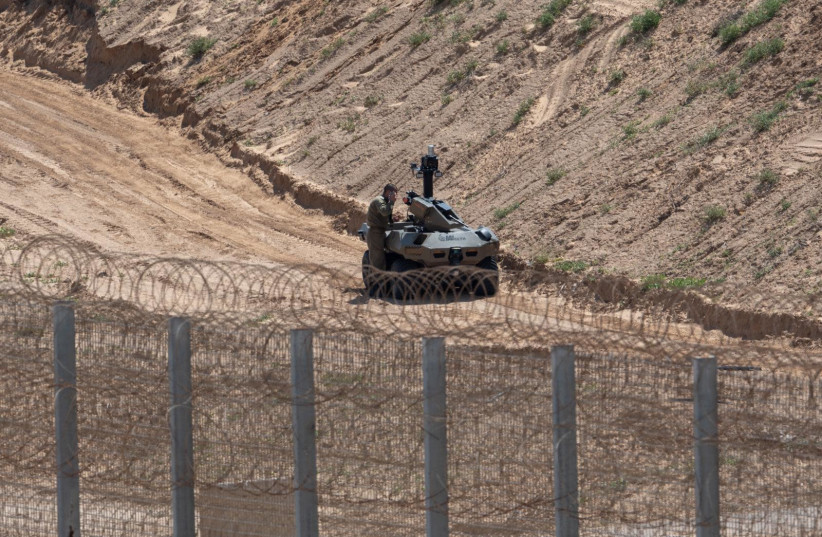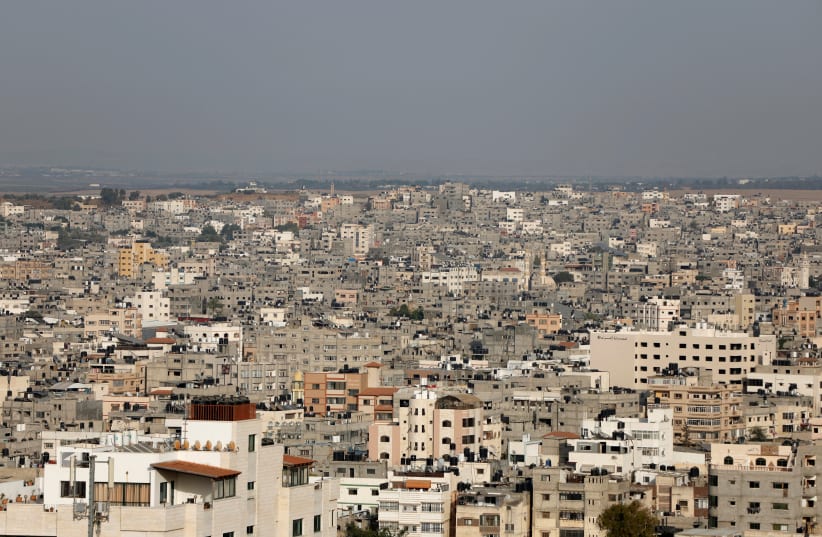Left-wing activist Yoel Marshak said Hamas had granted him permission to enter Gaza after he submitted a request to visit hostages.
“I am ready to go in tonight,” Marshak said, adding that he was waiting for permission from Israel.
He spoke with The Jerusalem Post after KAN initially broke the story about his desire to use his connections in Gaza to help the hostages. Hamas had granted him a three-day visit with a security guarantee, three months ago.
An Israeli going into Gaza?
Marshak’s story came to light on Wednesday after Hamas released a video of captive Hisham al-Sayed, from the Bedouin town of al-Hura. Hamas had warned that his health was deteriorating and showed him lying on a bed wearing an oxygen mask.


Both al-Sayed and Avera Mengistu, an Ethiopian immigrant who entered Gaza in September 2014, are believed to be suffering from psychological issues. Hamas is also currently holding the bodies of two IDF soldiers presumed to have been killed during the 2014 Gaza war: Lt. Hadar Goldin and St.-Sgt. Oron Shaul.
Israel has banned the entry of Israelis into Gaza since Hamas took over the enclave in a bloody coup in 2007, so special permission would be needed for any Israeli to enter.
The idea of entering Gaza, Marshak said, was born in part out of his relationship with Palestinian journalist Sami Obeid.
Marshak was careful to explain that his efforts would not be in the league of back-channel negotiations, but rather he wanted to use his ties to Gaza to help “move the agenda” with regard to the hostage situation which had dragged on for almost eight years.
Israel and Gaza post Disengagement
Post columnist Gershon Baskin, who opened a secret back channel between Israel and Hamas to help secure the release of Israeli captive Gilad Schalit who was held for five years after his kidnapping in 2006, said he too would be interested in entering Gaza if possible.
He let the relevant people in the Israeli know that he would be interested in using his experience to help secure the release of the two captives and the two bodies, but his offer was neither accepted nor rejected.
Baskin said he was skeptical that either he or Marshak would be allowed in. Baskin said he had entered Gaza two prior to the coup, to attempt to broker Schalit’s release. He had also met with Hamas officials outside of Gaza after the coup.
“The Israelis don't want direct contact with Hamas,” Baskin said, saying it was unlikely that private initiatives would be successful here.
Baskin has long held that Israeli and Hamas should hold direct talks. “If I were to go in, it would be on the condition that I would be on the phone with Israeli officials as a mouthpiece for the Israeli sides,” Baskin said.
“If I were to go in, it would be on the condition that I would be on the phone with Israeli officials as a mouthpiece for the Israeli sides.”
Gershon Baskin
He explained that the release of the video, gave the appearance that Hamas was more willing to make a deal now than it had been in the past. It was likely that if al-Sayed was ill, they would lower their expectations and seek a smaller deal that would allow foley for his release.
“My own advice,” Baskin said, “is to negotiate a package deal and not to do it piecemeal,” Baskin said he believed that Schalit’s ill health in 2011, was one of the triggers that allowed for that deal to move forward.
Defense Minister Benny Gantz on Wednesday called on Hamas to release al-Sayed, Mangistu, Goldin and Shaul, whom he referred to as the “four boys.”
This release should be done on humanitarian grounds and anything else is extortion, he said. At issue is the question of whether Israel would contemplate some kind of swap, either for Palestinian prisoners or the bodies of slain terrorists.
The Bennett government had initially attempted to include the release of the two captives and the two bodies, in the Egyptian indirect negotiations for a formal cease-fire deal between Hamas and Gaza. Those efforts never came to fruition.
Hamas moves now to generate Israeli attention to a deal that comes as Foreign Minister Yair Lapid is set to become interim Prime Minister, replacing Bennett. It also comes in advance of US President Joe Biden’s scheduled visit to Israel on July 13th.
Hamas’ publication of the video, Gantz said, “was aimed at extortion — on the back of a humanitarian issue.”
Gantz charged that “Hamas is holding the four boys captive in violation of international law, contrary to morality. Hamas is responsible for this and our expectation from the international community is to act in the face of this criminal conduct of Hamas.”
Israel, Gantz said, “continues to turn every stone in order to bring the boys home.
“As we have said before - this is a humanitarian issue, this is how we see it, and we will continue to act on this basis. Attempts at extortion and mindfulness exercises will not affect our attitude and conduct,” Gantz said.
